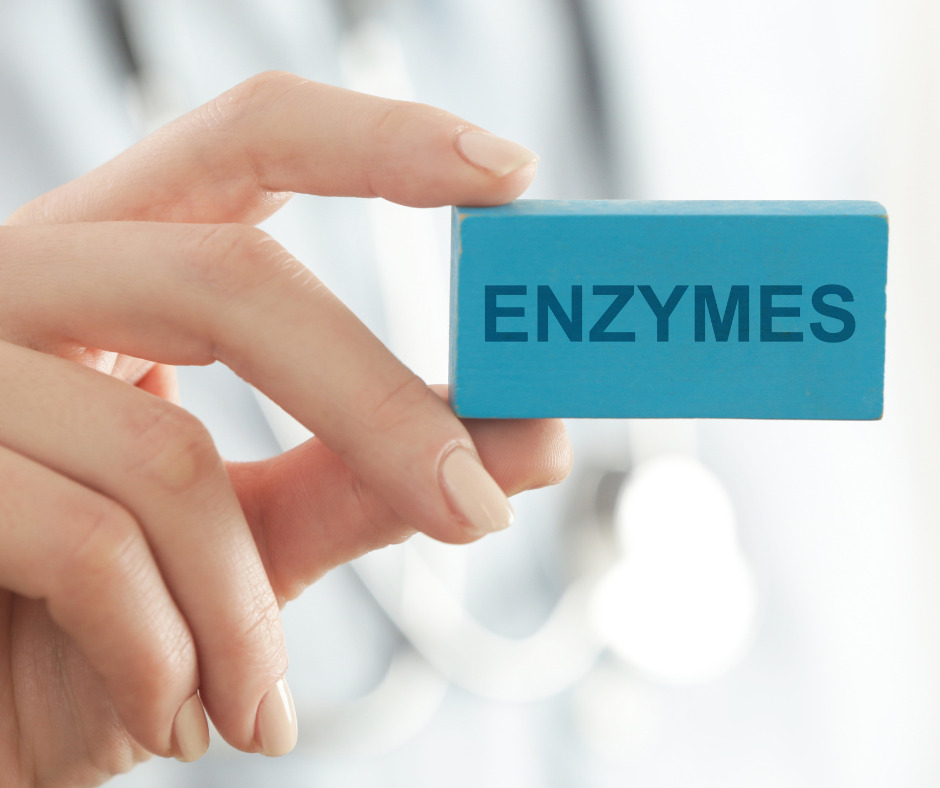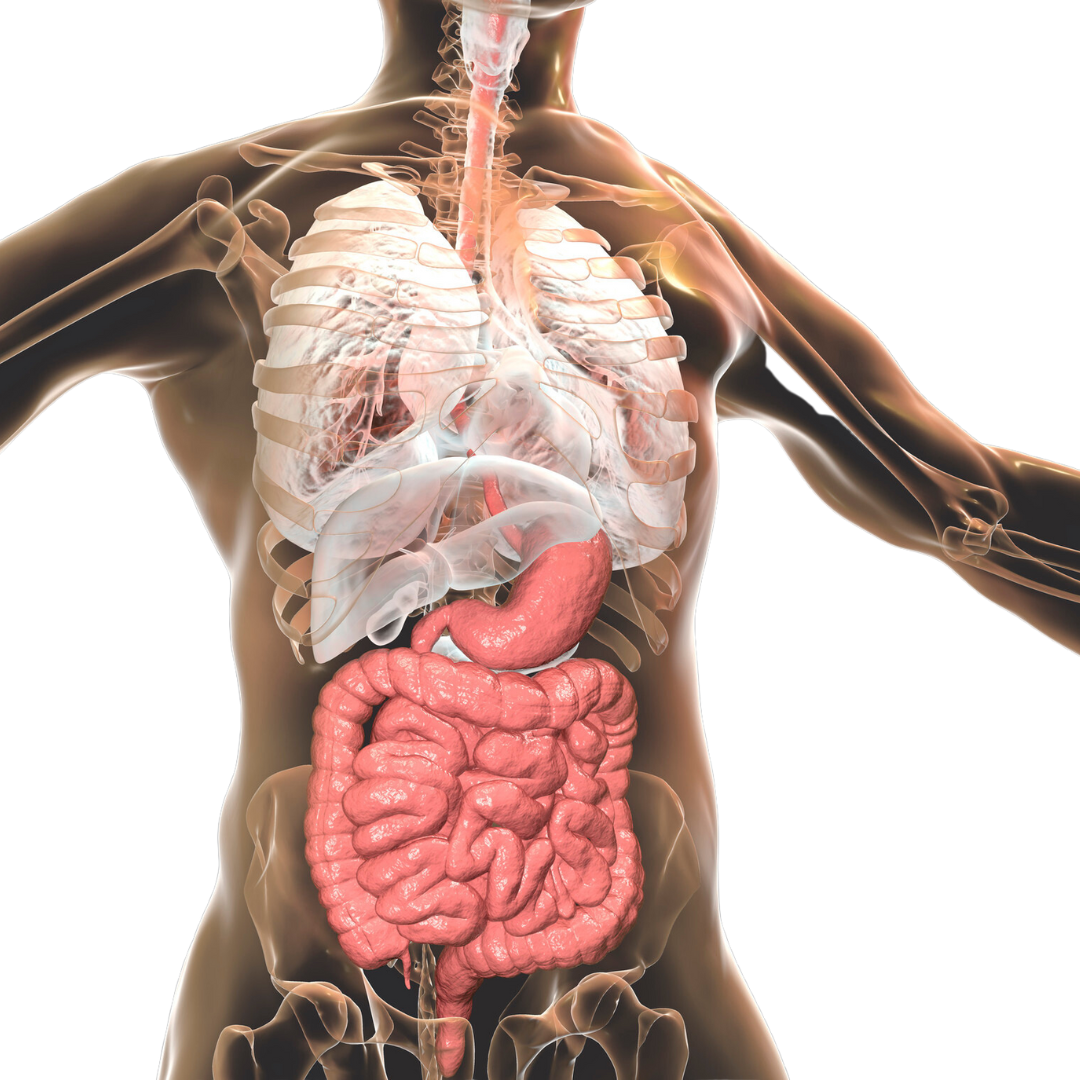

Did you know that digestive enzymes, particularly the enzyme for digestion, play a crucial role in breaking down the food we eat, ensuring we get the most out of every meal?
Understanding how these tiny but mighty helpers work can make a significant difference in addressing various digestive issues.
Let’s explore the world of digestive enzymes, their functions, and how enzyme supplements can come to the rescue when our bodies need some extra help.
Key Takeaways
- Digestive enzymes break down macronutrients for easier nutrient absorption.
- Enzyme supplements can address digestive issues, but it’s important to consult a healthcare provider and understand specific needs beforehand.
- Natural sources of digestive enzymes include raw fruits, vegetables & fermented veggies. Choose a plant-based enzyme supplement from a reputable brand for the best results!
Understanding Digestive Enzymes

Breaking down food into smaller molecules for efficient nutrient absorption is a key function of digestive enzymes. They are secreted from various sources within our bodies, including:
- Salivary glands
- Cells lining the stomach
- Pancreas
- Small intestine
Unfortunately, some digestive and kidney diseases can affect the production of these enzymes, leading to digestion-related issues. When a person doesn’t have enough digestive enzymes or their body doesn’t release them as it should, they struggle to break down certain foods and absorb nutrients. This situation can be genetic, congenital, or develop due to disorders or medical treatments.
In such cases, enzyme supplements can offer support and help alleviate digestion-related issues like acid reflux, gas, bloating, and diarrhea.
The Role of Digestive Enzymes
The breakdown of macronutrients such as fats, proteins, and carbohydrates for easier nutrient absorption is a primary function of digestive enzymes, including naturally occurring digestive enzymes. Over-the-counter (OTC) digestive enzyme supplements usually contain amylase, lipase, and protease, helping break down complex carbohydrates, proteins, and fats. Some supplements, such as Enzybar, may contain up to 15 types of enzymes which can give significant benefits.
A lack of digestive enzymes can lead to uncomfortable symptoms like:
- stomach aches
- diarrhea
- gas
- other unpleasant issues
Some health conditions, such as inherited genetic conditions or conditions that develop over time, can interfere with the secretion of enough digestive enzymes. In these cases, pancreatic enzyme replacement therapy may be recommended to help with digestion.
Sources of Digestive Enzymes
Various parts of our bodies, including the digestive tract, consist of:
- the pancreas
- salivary glands
- stomach
- small intestine
produce digestive enzymes. The pancreas is the main producer of digestive enzymes, which help break down carbohydrates, proteins, and fats.
Digestive enzyme deficiencies can be caused by certain conditions. Two examples are lactose intolerance and exocrine pancreatic insufficiency. Lactase non-persistence, a type of lactose intolerance, is caused by a decrease in the expression of the LCT gene and leads to symptoms 30 minutes to two hours after consuming dairy products.
Types of Digestive Enzymes and Their Functions

The main digestive enzymes are amylase, protease, and lipase, each targeting different nutrients. Amylase is responsible for breaking down carbohydrates, protease for proteins, and lipase for fats. These enzymes are secreted by the salivary glands, pancreas, and other specialized enzymes in our bodies.
Grasping the specific functions of these enzymes aids in dealing with various digestion-related issues. For instance, someone with lactose intolerance might benefit from a lactase supplement, while another person with difficulty digesting fats may need a lipase supplement.
Amylase, Protease, and Lipase
Amylase, protease, and lipase are the main digestive enzymes. They are responsible for the breakdown of carbohydrates, proteins, and fats respectively. Amylase enzyme breaks down down starches into sugars, making it easier for our bodies to absorb them.
Protease, on the other hand, breaks down proteins into amino acids, which are essential for various bodily functions. Lipase plays a vital role in the digestive process by breaking down fats into fatty acids and glycerol. These fatty and basic amino acids are then absorbed by our bodies and used for energy or stored for later use.
Maintaining adequate levels of these enzymes in our bodies is necessary for optimal digestion and nutrient absorption.
Other Essential Enzymes
In addition to the primary digestive enzymes, there are other essential enzymes that help with the absorption of specific nutrients, such as:
- Lactase, which helps break down lactose, a sugar found in dairy products
- Maltase, which breaks down maltose into glucose
- Sucrase, which breaks down sucrose into fructose and glucose
All of these enzymes are essential for our bodies to function properly.
These extra enzymes are designed to perform specific tasks; they target certain nutrients to improve our bodies’ absorption efficiency. Understanding how these enzymes function can help us maintain a healthy digestive system and address any potential deficiencies or issues.
Pancreatitis: Causes and Types

Pancreatitis triggers inflammation in your pancreas, severely affecting digestive functions. Acute forms of the condition manifest rapidly and are often due to gallstones or alcohol overindulgence. Immediate medical attention is essential, as untreated acute pancreatitis can lead to complications such as infection or even organ failure.
In contrast, chronic pancreatitis is a long-lasting condition usually triggered by extended alcohol abuse or recurrent acute episodes. It causes continual damage to the pancreas and may result in malnutrition due to poor food absorption. Treatment often involves lifelong medication and dietary changes to alleviate symptoms and prevent further pancreatic damage.
Understanding the types and causes of pancreatitis is crucial for both prevention and treatment. For those at risk, lifestyle changes such as reduced alcohol consumption and a low-fat diet can make a significant difference. These foundational concepts pave the way for our upcoming focus on the genetic factors involved in hereditary pancreatitis.
Hereditary pancreatitis is another type of pancreatitis caused by a genetic mutation. A comprehension of the various types and causes of pancreatitis aids in identifying potential risk factors. This knowledge allows for the seeking of appropriate treatment to manage this condition and uphold a healthy digestive system.
Addressing Digestive Issues with Enzyme Supplements

Enzyme supplements can provide relief to those with digestive issues by supplying additional enzymes to help break down food and absorb nutrients. People with pancreatitis, pancreatic cancer, cystic fibrosis, or other pancreas-related conditions may need prescription digestive enzymes, which often include pancreatic enzymes. For those who are lactose intolerant, there are over-the-counter lactase supplements also available to help with digestion.
A clear understanding of the specific needs and conditions that may necessitate enzyme supplements is crucial. For instance, someone with cystic fibrosis may need to take enzymes at every meal and snack, while the dosage and timing may vary depending on the individual’s age and the type of food consumed. Consulting a healthcare provider before taking enzyme supplements can ensure the most effective and safe treatment.
Benefits of Enzyme Supplements
Enzyme supplements provide numerous advantages, such as enhanced digestion, alleviation of gastrointestinal symptoms, and dietary support for specific needs. By providing additional enzymes that the body may be lacking, enzyme supplements can help break down food more easily, alleviating symptoms like bloating, gas, and indigestion. They can also help the body absorb nutrients more efficiently, leading to better overall health.
In some cases, enzyme supplements can be a valuable tool for those with specific dietary restrictions, such as lactose intolerance or those following a vegan diet (see Enzybar Vegan). By targeting specific food molecules, enzyme supplements can help these individuals maintain a healthy digestive system and avoid uncomfortable symptoms.
Side Effects and Precautions
Despite the relief enzyme supplements can provide for those with digestive issues, being cognizant of potential side effects and precautions is vital. Taking too much of these supplements can cause allergic reactions, such as:
- itching
- rash
- stomach pain
- difficulty swallowing
If you experience any allergic reactions, stop taking the supplement and seek medical help immediately.
Before taking an over-the-counter digestive enzyme supplement, it’s essential to consult a healthcare provider to ensure the product is safe and appropriate for your specific needs. Checking the ingredients list for allergens and other potentially problematic ingredients can help you choose a supplement that is both safe and effective in addressing your digestive issues.
Natural Sources of Digestive Enzymes

Foods such as fresh fruits and vegetables, especially tropical fruits and fermented veggies, are natural sources of digestive enzymes. Consuming a well-balanced diet that includes these enzyme-rich foods can help support a healthy digestive system and provide relief from various digestive issues. It’s important to note that heat can reduce or eliminate plant enzymes, so consuming these foods raw is the best way to benefit from their natural enzyme content.
Maintaining a diet rich in natural sources of digestive enzymes can help prevent the need for enzyme supplements in many cases. By focusing on a well-balanced diet that includes enzyme-rich foods, you can support your body’s natural digestive processes and avoid potential issues related to enzyme deficiencies.
Choosing the Right Enzyme Supplement

Choosing the appropriate enzyme supplement is crucial for maximizing your digestive support. When choosing an enzyme supplement, make sure it contains protease, amylase, and lipase to help digest protein, carbohydrates, and fats. Opt for plant-based enzymes and a reputable brand to guarantee quality and efficacy.
Keep in mind that there isn’t a one-size-fits-all solution when it comes to enzyme supplements. Given that each enzyme performs a unique role and operates optimally under specific conditions, selecting a supplement that addresses your unique needs and dietary restrictions is of utmost importance. Consulting a healthcare provider can help you pick the most appropriate enzyme supplement for your specific situation.
How to Choose a Quality Enzyme Supplement
Quality Certifications: Your Assurance of Excellence
Quality certifications serve as the gold standard when you’re shopping for vitamins, acting as your personal seal of approval for both safety and effectiveness. These certifications are often backed by stringent European norms and standards.
European Oversight: The Benchmark for Reliability
The European Union sets robust guidelines for vitamin safety and effectiveness. Specifically, the European Medicines Agency (EMA) is at the helm, laying down the rules for what makes an enzyme supplement not just marketable, but truly effective and safe. The European Food Safety Authority (EFSA) also is a reliable source of information.
Choose Wisely: Your Brand Matters
While many brands, such as Schonen, give you the confidence of quality certificates, remember that not all do. So, scrutinize those labels and certifications. Ensure the product you pick adheres to European quality standards, giving you full confidence in your choice.
Our Experience
I have worked for over 20 years at Maxima Health Research, a regulatory affairs agency. We have managed several thousand regulatory processes. The differences in documentation, and proven quality standards among products is extreme. Consumers need to beware of that generic, no name pancreatin enzyme supplement on the pharmacy shelf. Best to rely on established brands that have a known reputation for quality. Well known brands such as Kreon, Enzybar and Mezym.
Summary
In conclusion, understanding the role of digestive enzymes and their various sources is vital to maintaining a healthy digestive system. Whether through a well-balanced diet rich in enzyme-containing foods or through the use of enzyme supplements, ensuring that our bodies have adequate digestive enzymes can significantly improve digestion and reduce uncomfortable symptoms. Remember to consult a healthcare provider before taking enzyme supplements to ensure their safety and effectiveness. With the right knowledge and support, you can unlock the power of enzymes for better digestion and overall well-being.




